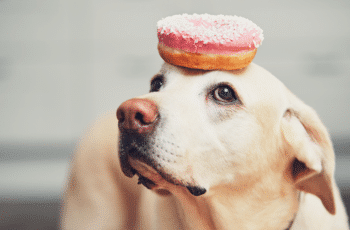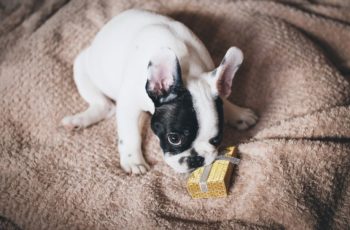Imagine a lazy Sunday afternoon. You’re lounging on your porch, a gentle breeze wafting through, and at your feet lies a loyal companion. Droopy ears, soulful eyes, and a stout but sturdy body. Yes, you’re picturing a Basset Hound, one of the most loved and recognized breeds in the world. As a pet owner, it’s important to understand their unique traits and quirks to ensure you provide them with the best life possible.
Basset Hounds are known for their distinctive appearance and temperament. They’re gentle, friendly, and incredibly patient, making them excellent pets for families with children. But understanding their needs, care, and health is crucial to raising a happy and healthy Basset Hound. Let’s dive into the wonderful world of these hounds and discover what makes them so special.
Whether you’re a potential Basset Hound parent or a seasoned owner, this comprehensive guide will enlighten you on the breed’s history, appearance, temperament, living needs, care, and health.
Appearance
The Basset Hound is known for its unique and unmistakable look. Their most notable features are their long, droopy ears and mournful eyes which give them their characteristic sad look. But don’t let that fool you – these dogs are far from gloomy!
These hounds have a robust, low-lying body that’s longer than it is tall. They have short, sturdy legs, but don’t let their stature deceive you. Their bodies are muscular and strong, enabling them to be excellent hunters.
Their coat is short, smooth, and dense, providing excellent protection against harsh weather. Basset Hounds come in a variety of colors, including tri-color, black and white, brown and white, and lemon and white. Their tail is long and often carried high, while their skin is loose and falls in folds on their head.

Temperament
Basset Hounds are a friendly, outgoing, and extremely patient breed. They’re known for their good-natured temperament and their love for human companionship. Despite their hunting history, these dogs are typically very laid-back and enjoy a good nap more than anything else.
They’re great with children and other pets, making them an excellent choice for families. However, they can be a bit stubborn at times. Training them requires patience, but with a firm hand and a gentle touch, you can mold your Basset Hound into a disciplined and obedient pet.
Basset Hounds are also known for their keen sense of smell. They’re second only to the Bloodhound in this respect. This makes them curious and eager to follow their noses, which can sometimes lead to them wandering off. It’s important to keep an eye on them when they’re outdoors to ensure they don’t get lost.
While Basset Hounds are relatively low-energy dogs, they still need regular exercise to keep them healthy. A daily walk or play session in the yard is usually sufficient. However, their short legs and long bodies make them prone to back problems, so avoid strenuous exercise or letting them jump on and off furniture.
These dogs are social creatures and enjoy being part of the family activities. They’re happiest when they’re with their human family and can become sad or anxious when left alone for long periods. Therefore, they’re not the best choice for individuals who are away from home frequently.

Living Needs
While they can adapt to living in an apartment, they do best in homes with a yard where they can sniff and explore. They’re also known for their loud baying, so consider your neighbors when thinking about bringing a Basset Hound into an apartment complex!
Care
Caring for a Basset Hound involves regular grooming, feeding, exercise, and health check-ups. Their short coat is easy to groom but sheds moderately, so regular brushing is necessary. Their long, droopy ears also need regular cleaning to prevent infections.
Feeding your Basset Hound a balanced diet is crucial for their health. They’re prone to obesity, so monitor their food intake carefully and avoid giving them too many treats. Regular vet check-ups are also essential to catch any potential health issues early.
Training a Basset Hound requires patience. They’re stubborn dogs, but they’re also eager to please. Positive reinforcement methods work best with this breed. Remember, a well-trained Basset Hound is a happy Basset Hound!
Health
Like any dog breed, Basset Hounds are prone to certain health conditions. These include obesity, ear infections, hip and elbow dysplasia, and eye conditions like cherry eye and glaucoma. Regular vet check-ups and a healthy diet can help manage these issues.
See also

One unique health issue for Basset Hounds is Gastric Dilatation-Volvulus (GDV), also known as bloat. This is a serious condition that can be life-threatening if not treated promptly. It’s important to recognize the signs of bloat, which include an enlarged abdomen, excessive drooling, and signs of discomfort.
Despite these potential health issues, Basset Hounds are generally healthy dogs that live long and happy lives. With proper care and regular vet visits, your Basset Hound can live up to 10-12 years or even longer!

History
Originally bred in France and Belgium, the Basset Hound’s history dates back to the 16th century. They were used for hunting small game due to their excellent sense of smell and their short stature, which allowed them to sniff out game in dense underbrush.
The breed’s popularity increased in the 19th century when they were imported to England and later to the United States. They were recognized by the American Kennel Club in 1885. Since then, their popularity has only grown, and today they’re loved as both hunting dogs and family pets.
Despite their hunting background, Basset Hounds have also found fame in pop culture. They’ve appeared in numerous movies and TV shows, and have even served as mascots for popular brands. Their distinctive look and lovable personality make them a favorite among dog lovers worldwide.
Conclusion
There’s no doubt that the Basset Hound is a unique, lovable breed. From their distinctive look to their gentle temperament, these dogs have a special place in our hearts. But owning a Basset Hound is a big responsibility. They require regular care and attention to live a long and healthy life.
Whether you’re thinking about getting a Basset Hound or you’re already an owner, understanding their needs, temperament, health, and history is crucial. With the right care and love, your Basset Hound will be a loyal, loving companion for years to come.


